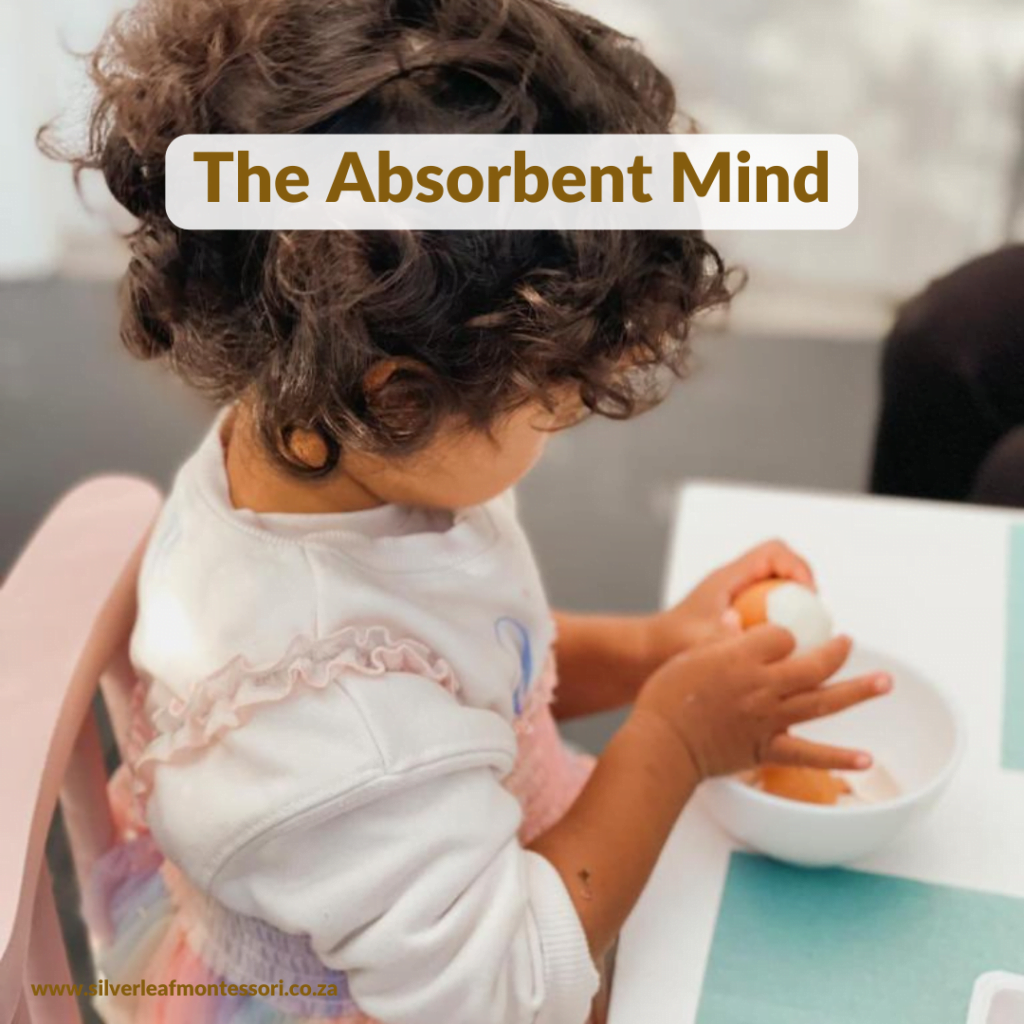What is the plane of development Montessori referred to as The Absorbent Mind and why is it so important?
The Absorbent Mind is considered important because it represents a critical period in a child’s life when they have a remarkable ability to absorb information and learn from their environment effortlessly. During the Absorbent Mind plane, which typically occurs from birth to around the age of six years, children have a natural inclination to soak up knowledge from their surroundings without conscious effort. We can say that the young child’s mind is like a sponge, constantly absorbing and internalising information. The period of the Absorbent Mind is further divided into two substages: the unconscious absorbent mind (from birth to around age three years) and the conscious absorbent mind (from around age three to six years).
There are several reasons why the absorbent mind is considered important in Montessori education:
1. Rapid learning: Children at this stage effortlessly absorb information, language, social norms, and various skills without explicit instruction. Their minds are highly receptive, and they learn rapidly and efficiently. This is one of the reasons why a second language, for example, is easily learned by young children, while for adults this requires a lot more effort and practice.
2. Sensory exploration: Children use their senses to explore and make sense of the world. The absorbent mind allows them to integrate sensory experiences and build a strong foundation for further learning. This is why we strongly recommend and encourage engagement in outdoors activities, nature, and messy play.
3. Language acquisition: The Absorbent Mind stage is crucial for language development. Children effortlessly acquire language skills by listening to and imitating the language spoken around them. They absorb vocabulary, grammar, pronunciation, and intonation patterns. Parents might recognise this tendency in their own children when their child repeats words that the parents thought they weren’t listening to!
4. Formation of concepts: After a lot of hands-on, sensorial experience and exploration with concrete materials, children in the substage of the conscious Absorbent Mind develop abstract thinking and begin to form concepts. They create mental images and build their understanding of various subjects like mathematics, science, and culture.
5. Imagination and creativity: The Absorbent Mind fosters imaginative thinking and creativity. Children use their early experiences and knowledge to problem solve, come up with new ideas, and develop their unique perspectives of the world.
6. Formation of personality and integration of culture: The Absorbent Mind stage is crucial for the development of a child’s personality and adapting to their culture. They internalise values, social norms, and moral principles from their environment, shaping their behaviour, beliefs, and attitudes.
Montessori educators create prepared and favourable environments that are rich in learning opportunities and materials that cater to the Absorbent Mind. They provide a range of sensorial, practical life, language, and cultural activities to engage children’s natural curiosity and promote holistic development.
By recognising and nurturing the Absorbent Mind, Montessori education capitalises on the nature of this plane of development to lay a strong foundation for lifelong learning, independent thinking, and the development of well-rounded individuals.


